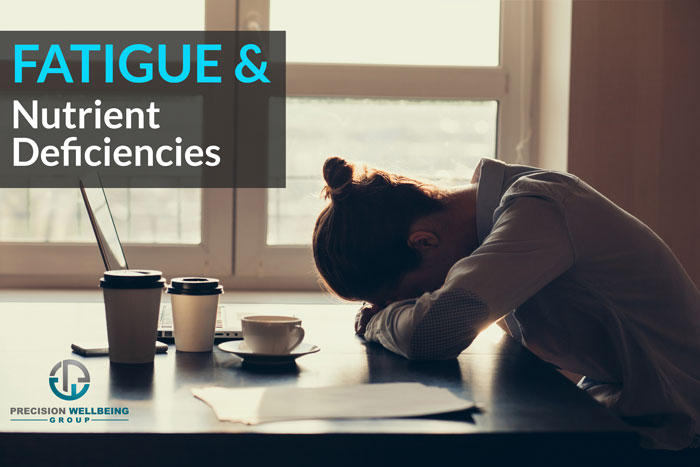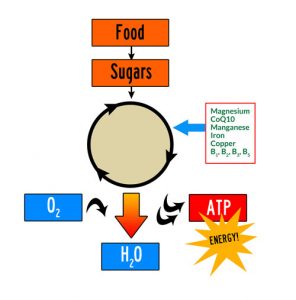
The other week I gave you 10 possible reasons why someone may be experiencing fatigue. Just in case you missed it the 10 I mentioned were;
- Lack Of Sleep
- Low calorie diet
- Nutrient Deficiency
- Anaemia
- Immune Response
- Hypothyroid
- Depression
- Medication
- Adrenal Fatigue
- Cancer
Today we are discussing points 2 and 3, low calorie diets and insufficient nutrients.
First We Need To Understand Food
All the food you eat will ultimately convert to energy in your body, no matter whether it’s from protein, carbohydrates or fat.
For the purpose of today’s article I will only be referring to energy from carbohydrates.
Simply speaking, you can get natural carbohydrates and processed carbohydrates. Natural carbohydrates will include all fruits, vegetable and grains in their original forms (or as close to as possible). Examples would include apples, potatoes, broccoli and porridge oats. Now porridge oats are obviously not in their original form but you can still see that they are oats.
Processed carbohydrates on the other hand would include bread, cookies, fizzy drinks and breakfast cereals as examples. Most of these foods don’t resemble their original forms and will have been processed to end up in the forms I’ve just mentioned. During the processing of these foods, many nutrients are lost leaving very few health giving nutrients.
As you eat any foods from the above categories, your body will digest them into their simplest form; glucose (sugar). The amount of glucose that’s created will depend on what the food was to begin with which will also affect how quickly this glucose enters your blood stream.
The quicker this glucose enters your blood and the more of it there is means this higher your blood sugar levels will rise.
The faster your blood sugar levels rise the quicker your body needs to get rid of the sugar which means that the more your blood sugar levels will fall.
If your blood sugar levels fall too far you will feel tired and sleepy.
Where Does Energy Come From?
Virtually every cell within your body can create energy.
 The main way this happens is the glucose that is in your blood sugar is taken in to the cells and through a number of steps it is converted into something called ATP (which is your body’s energy currency). You can see on the image to the right a very basic diagram outlining these steps. The red box to the right of the image show what nutrients are needed.
The main way this happens is the glucose that is in your blood sugar is taken in to the cells and through a number of steps it is converted into something called ATP (which is your body’s energy currency). You can see on the image to the right a very basic diagram outlining these steps. The red box to the right of the image show what nutrients are needed.
Some of the steps I mentioned above require the following vitamins, minerals and metals; Magnesium, Vitamins B1, B2, B3 and B5, CoQ10, Manganese, Iron and Copper.
If you are deficient in any one of these Vitamins, Minerals or Metals these steps inside your cells will not be able to take place and therefore your cells won’t be able to make ATP (energy).
How Do You Become Nutrient Deficient?
The most obvious way to become deficient in nutrients is by eating a low nutrient diet. If you aren’t taking in certain nutrients then the ones you do have will become used up and not replaced.
The second way you may become deficient is by not absorbing your nutrients. Maybe you are eating a perfectly good diet but your digestive system is not working well and it can’t extract and absorb nutrients. This will eventually lead to you using your nutrients up but your body is unable to replace them.
So What Can You Do?
The first and easiest thing you can do is to make sure you are eating a natural and varied vegetable rich diet while minimising the amount of processed food you eat.
The next thing is to determine whether you are absorbing your nutrients and this can be done through clinical questioning and possibly even certain lab tests.
Overall the best test that can be done initially is a Complete Blood Test through your GP. That can indicate if you are nutrient deficient at all. If you find it difficult to get an appointment with your GP or you would like to order one privately they are around £150 (this can be ordered through us).
Either way once you have your results we can then have a look through and guide you more appropriately.
From there we can then work on increasing your nutrient intake or your nutrient absorption through a Functional Medicine approach.
If you would like to discuss this further please send us an email to info@precisionwellbeing.co.uk or call us on 0203 356 7060 to arrange a free 15-30 minute consultation to figure out the best course of action for you.
I hope that has helped you in some way.
Ashley